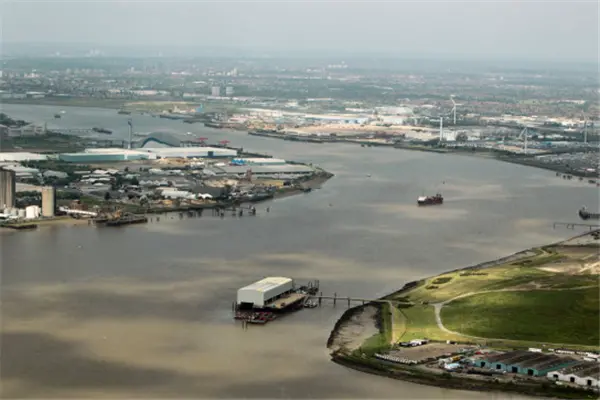Leading experts from business and British government Thursday unveiled a new commission to spearhead an ambitious growth plan for the Thames Estuary.
The Thames Estuary 2050 Growth Commission aims to boost productivity, attract and retain skilled workers and capitalize on major infrastructure works in an area stretching for 64 km from Canary Wharf in London to Southend in Essex and Thanet in Kent. With a population of more than three million, and its unique location and potential, the zone is seen as a long-term national priority for growth.
"The commission promises to put in place a vision which will unleash growth for decades to come," said a spokesmen for the Department for Communities and Local Government.
The new commission is being led by Lord Heseltine, architect of some of Britain's most successful regeneration projects such as London Docklands and Liverpool city center. Heseltine has brought together a team of 17 experts to set out how to make the Thames Estuary growth vision a reality.
The commission will consult with businesses and others before submitting plans to Chancellor of the Exchequer Philip Hammond ahead of the autumn statement in 2017.
Heseltine said Thursday: "All the evidence suggests that the Thames Estuary has incredible economic potential. This commission presents a wonderful opportunity, not only to make the most of plans already afoot, but to look beyond that and forge ahead with a vision to unleash growth for decades to come."
A number of projects have already been announced for the growth area, including 400 million U.S. dollars for the development of a new garden city at Ebbsfleet and 2 billion U.S. dollars of private investment to create a London Gateway Port, which could create up to 12,000 direct jobs and a further 30,000 indirect jobs.
Proposals will also see the expansion of Southend Airport from fewer than 5,000 passengers a year to more than a million, and there is also a planned new road crossing in the Lower Thames area.
The commission's initial work will focus on six work streams, including creating high productivity clusters, increasing connectivity, creating new homes and communities and securing investment.
(APD)
 简体中文
简体中文

